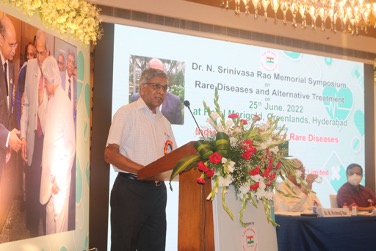Project Y and the Rare Care Centre at Perth Children’s Hospital have partnered with the Indian Organisation for Rare Diseases (IORD) to improve rare disease visibility and recognition on a global scale.
Following advocacy from IORD, the health commissioner of India’s state of Telangana approved a ground-breaking proposal to count rare disease patients within their state. They are working in collaboration with India’s Accredited Social Health Activist (ASHA) workers, who have recently been recognised by the WHO Director-General’s Global Health Leaders Award for their outstanding contribution towards health promotion. There has also been a push towards including rare diseases in the Indian National Census.
Counting rare diseases and rare disease patients is of utmost importance for both the patients and health services. Without a true count, policymakers are unable to equitably allocate resources. It also undermines the true socioeconomic impact on the lives of patients, their families, and broader society. If people living with rare diseases are not counted, then they will feel like they do not count.
The Indian Organization for Rare Diseases (IORD) is a not-for-profit organisation which represents all stakeholders of rare diseases in India. Its mission is to raise awareness of rare diseases, advocate for public policy and promote orphan drug development. Along with their other achievements in the rare disease space, they have successfully advocated for the publication of a National Policy on Rare Diseases in India.
Project Y is a Western Australian-based organisation that delivers life-changing initiatives to improve the lives of people living with rare diseases and their families. It currently oversees the Undiagnosed Diseases Program, Lyfe Languages and Pilbara Faces. Project Y is also intertwined with Perth Children’s Hospital Rare Care Centre, which is an Australian-first hub for providing cross-sector services in rare disease care.
Image: Prof Ramaiah Muthyala, CEO, of the Indian Organization for Rare Diseases, delivering the inaugural address at ‘Dr N Srinivasa Rao Memorial Symposium – Rare Diseases & Alternative Treatment’ in Hyderabad.
Back to news